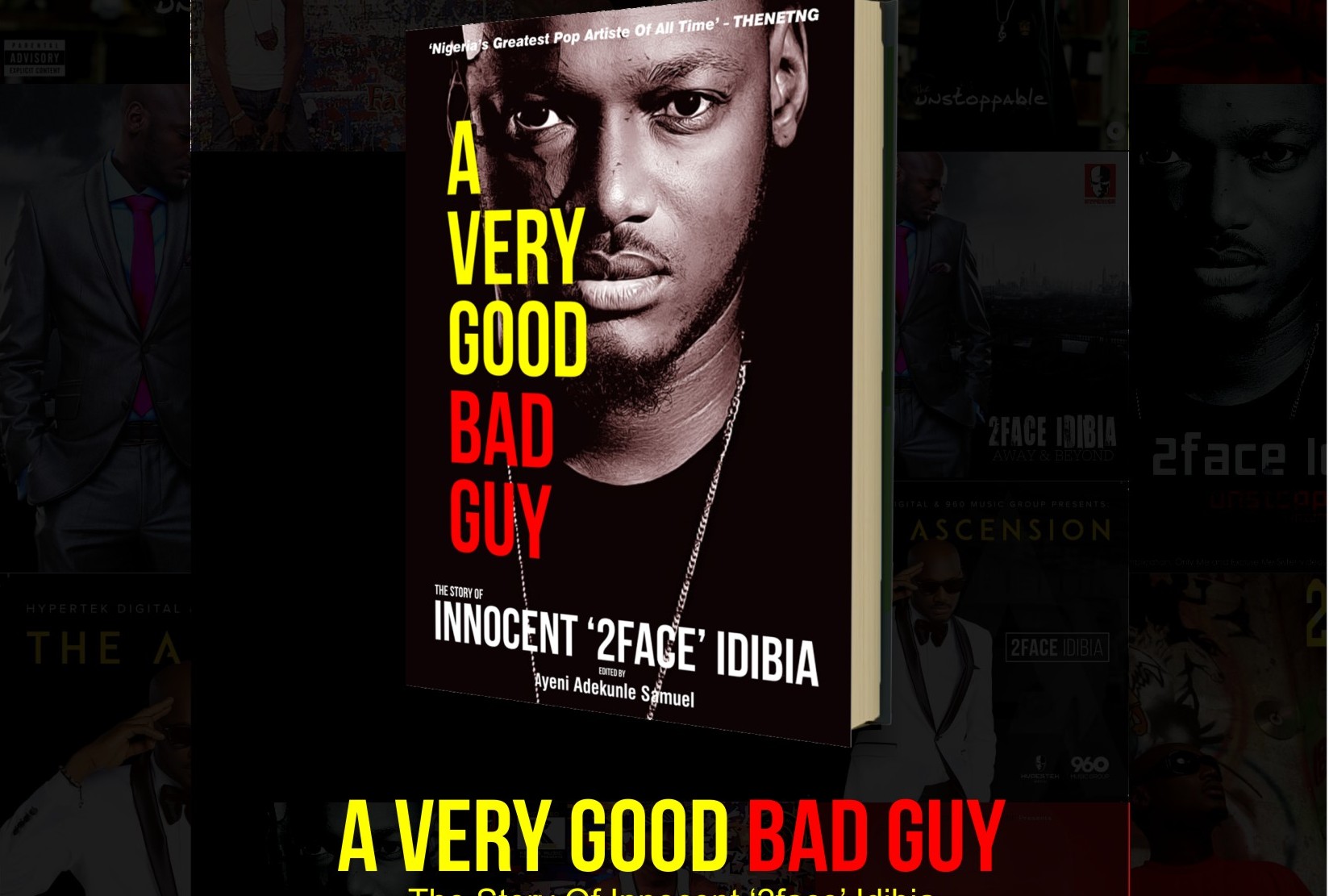By David Hundeyin
Everyone claims to be a book reader. Only a few really are. Ayeni Adekunle, publisher of NET Newspaper is one of them, and I know this because a few weeks ago, when we happened to be at the University of Ibadan, he made it a point to swing by the University bookshop and buy a bunch of books for his kids. That’s the kind of thing only a book person does. So I tend to listen when he is talking about books. Anyway I digress.
So yesterday October 20, 2015, we were at Terra Kulture, Victoria Island, Lagos for the launch of 2Face Idibia’s biography published by NET Books titled, “A Very Good Bad Guy: The Story Of Innocent ‘2Face’ Idibia”. In the packed hall with several showbiz personalities in attendance, from 2Face and wife Annie, to Richard Mofe-Damijo, Tiwa Savage and Sound Sultan, Mr. Ayeni made a remark during his welcome address that spoke directly to something inside me. He said,
“I went to the University of Ibadan where I studied Microbiology and I spent a lot of time there reading up on music, film, theatre and the arts. I noticed that all the books about African artistes were written by white people. So they would call Kollington Ayinla a Juju artiste and I would get upset. They would say Salawa Abeni created Waka music and it would make me upset.
But these are the things that happen when outsiders write your story – they are called honest mistakes, and we have a lot of honest mistakes which have become accepted as fact because there is no documentation to challenge them. This is why I think what we are doing here today is very important – we are documenting the story of 2Face Idibia for future generations to read and learn from.”
Listening to this, I remembered something that I saw recently:
This is the Wikipedia page of Fela Anikulapo-Kuti.
Or Fela Kuti according to the white person who wrote this.
Notice any problem here?
Abami Eda, to those familiar with his life, was considerably more than just a talented musician or a successful entertainer. He was an institution. He was the living embodiment of the African cultural renaissance. His music and his life spoke and still speaks directly to millions of Africans around the world in a way that nothing or no one else managed until then or ever since. How does a European writer understand and fully capture the cultural significance of ‘Colomentality’, ‘Zombie’, ‘Yellow Fever’ and ‘Mr Follow Follow’? How does he or she quantify and capture the full impact of Fela Anikulapo-Kuti on Nigerian and African society?
They cannot.
Hence we end up having the cultural behemoth that is Fela, crammed into slightly meaningless clichés like ‘political maverick’. Can a European writer comprehend why Fela’s music and lifestyle enraged a military government enough to kill his mother? Can they understand that Fela was imprisoned, not merely because the ruling Generals were silly tin-pot dictators with fragile egos, but because his level of support and influence was such that it was a direct threat to the military regime ruling Nigeria if he so wished?
They cannot.
So they sum him up with a neat, bland cliché. “Political maverick.” He is even described therein as a “human rights activist”. Obviously the white person who wrote his Wikipedia entry never listened to “Beasts Of No Nation” or did not understand the full import of the song. Fela himself would scream with laughter if you were to describe him as a “human rights activist” in his lifetime.
The misrepresentation even extends to his picture on Wikipedia:
 …Petite bourgeoisie Fela sipping juice and looking like a playboy.
…Petite bourgeoisie Fela sipping juice and looking like a playboy.
Compare that to the picture below.
…Onstage Fela channeling powerful African spirits to speak to us.
When describing the life and times of Fela, which of these two pictures speaks more powerfully to you about who he was and what he represented?
But we are the ones who know this. Outsiders either don’t know or choose not to know.
When we failed to properly document the genius of Fela who lived right here with us in Lagos, we opened the door to what Mr. Ayeni graciously describes as “honest mistakes”, but which in reality are often deliberate and calculated distortions. Humanity itself is a story. When a section of humanity leaves its storytelling and documentation to others, it opens itself up to prejudice, misunderstandings, bigotry, exploitation, cultural theft and erasure by others.
This is what we are currently doing to our notable personalities from Umaru Musa Yar’Adua to Vincent Enyeama; from Jim Ovia to King Sunny Ade. Thankfully, 2Face is forever off that list now. A Very Good Bad Guy is 392 pages of unadulterated content from the mouths of his industry colleagues, managers, siblings, close friends and wife. The story it tells is inimitably rich, nuanced and detailed with a plethora of interesting anecdotes and serious lessons to take away. We can only imagine what his biography would have looked like if we had left it to a white person to write it for us. Maybe the first page would have looked a little like this:
Overview
Innocent “2Face” Ujah Idibia is a contemporary Afropop artiste who won the 2007 MTV EMA Best African Act. His 2005 single African Queen was one of the most successful songs ever recorded by a Nigerian artiste and was used as a soundtrack in several movies and TV shows including Phat Girls. He has released 5 albums and collaborated with several international artistes including T-Pain.
Controversy
2Face is noted for having several children by women he is not married to. He has been involved in armed altercations four times and he has been shot once. He was once involved in a traffic accident caused by over speeding while he was in an intoxicated state.
Discography
Xyz
The End.
—
There would be no mention of his crucial early history that shaped the man and the music to follow. No mention of his huge cultural impact as a pioneer of the modern pop music genre in Nigeria and Africa. No mention of his economic impact as a major pioneer of the Nigerian creative industry renaissance. Passing mention of his marriage to Annie Idibia as if it is not a major story in his life.
Basically we would get to see this 2Face:
There is also this 2Face:
…but he would get ignored or glossed over, and future generations reading about him will only know him as this guy who sang African Queen and got everybody pregnant. So much cultural richness and wisdom would be lost by failing to tell and document the story of our own.
At any rate, hurrah for 2Face. He has escaped the worst fate an artiste can face – erasure. So that’s one down.
There are hundreds to go.







Comments
Loading…